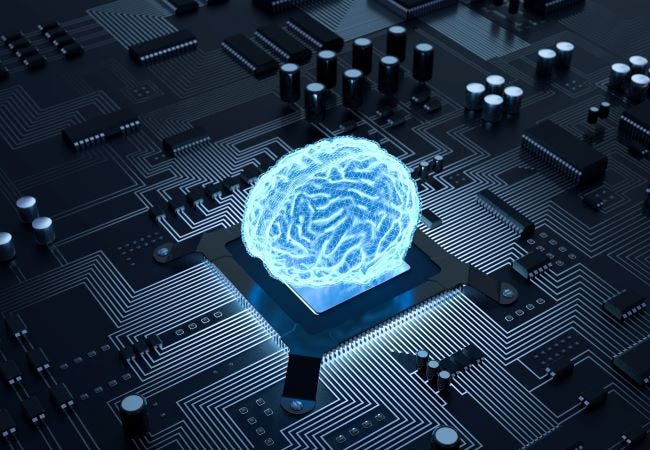Organizations have been investing heavily in developing and deploying artificial intelligence (AI) in a number of applications in recent years. Building efficient AI deployment teams has proven difficult for a number of reasons, including a demand for college-educated workers that far outnumbers supply.
Furthermore, organizations are having difficulty incorporating much-needed diversity into their deployment teams.
Many of the world’s most well-known technology companies have abandoned the necessity of a college degree in their hiring process, partly to solve the talent gap.
Companies like Apple, Google, and IBM have boosted their recruiting of non-degreed practitioners, recognizing that self-starters have found non-traditional means to become highly adept in computer architecture and software development.
Self-taught computer experts are now highly employable, because the search is for competency rather than formal training. College-educated professionals often still command a pay premium, but self-taught computer experts are now eminently employable. However, this does not imply that anybody with a strong background in software development and artificial intelligence should be involved in an organization’s AI implementation initiatives.
Whether college-educated or self-trained, AI deployment team members need possess a number of key abilities in order to become truly effective assets. In this post, we’ll look at some of the common skills that make up a successful team.

AI Deployment Needs in Software Development
AI installations include a wide range of applications, and each one may necessitate highly specialized skills.
There are, however, general abilities that team members should possess regardless of the deployment or their educational background. Analyzing the AI deployment process is required to identify these core competencies.
The AI lifecycle begins with evaluating the business needs for AI use and the analytics approach to use, followed by discovering and gathering relevant data.
Although deployment is one of the final steps in the AI lifecycle, deployment team members should be familiar with the entire process.
At a high level, the AI lifecycle resembles the software development lifecycle. It “defines different stages that are necessary to move a project from its initial idea or conception all the way to deployment and later maintenance,” according to Cloud Defense software engineer Mark Preston.
Given the structure of the AI development lifecycle, the team as a whole should share a common foundational knowledge base that includes:
-
A general understanding of the business requirements for AI deployment.
-
A general understanding of the analytic techniques (e.g. NLP, machine learning, etc.).
-
A general understanding of the data in the AI model.
-
A general understanding of the desired outcomes.
To construct meaningful models and discover trends in the data, the team must be able to cope with massive amounts of data.
AI engineers, data scientists, coders, ethicists, IT professionals, and others may be part of a deployment team, each with their own particular knowledge and training.
Essential Competencies for AI Deployment Team Members
While this list of skills aims towards the team’s technical members, many of them are applicable to all team members (e.g. lawyers, HR, ethicists, ets.). When looking at the skills that constitute a successful technical member of the deployment team. It’s evident that a four-year college diploma isn’t always must-have.

1. Ability to Learn
The ability to learn is one of the crucial qualities for team members because AI implementation necessitates ongoing monitoring and change. Because the AI profession is continually growing, with new algorithms surfacing frequently, AI engineers and data scientists may require as much training as their models.
A college diploma isn’t the only indicator of future learning potential.
One may argue that because their education was not guided, a self-taught AI practitioner has exhibited a greater ability to learn than a college-educated team member.
They did, after all, have to learn how to learn. Current industry certifications are one way for both degreed and non-degreed individuals to demonstrate their technical expertise.
2. Relevant Technical Knowledge
Strong technical expertise is, of course, one of the most important requirements for an AI engineer or data scientist.
Neural networks, deep learning, algorithm creation, software development, programming, data science, and statistics, as well as other AI principles, are required of technical members of the deployment team.
The deployment team should be familiar with compliance and risk management issues. For example ethical and regulatory challenges inherent in AI deployments. Also the specific risks related with the deployment.
For example, team members should be aware of the possibility of bias insertion in AI models.
The deployment team may ensure that the models are correctly trained, tested, and validated prior to deployment by recognizing challenges such as AI bias. A more varied crew is also more likely to spot problems.
3. Curiosity and Creativity
The most effective team members will have a demonstrated willingness to learn as well as the aptitude to learn.
Curiosity and creativity will enable team members stay up to date on the latest cutting-edge algorithms and training approaches. Also help them improve their models after they’ve implemented.
4. Understanding of Security and Data Privacy
Members of the team should also evaluate whether there are any data privacy concerns. As this could affect the AI model’s design and implementation.
Because several of the most popular artificial intelligence applications involve sensitive assets or data, this is the case.
The good news is that a number of strong AI-based technologies are available to safeguard these apps.
AI security technologies function by sifting through massive volumes of data for patterns that signal if a security breach. Furthermore, AI may be used to detect security flaws in applications that aren’t hosted on traditional computer systems.
5. Communication skills
Because of the diversity of teams, members must be able to communicate successfully. It is critical for the AI engineer to have strong communication skills. Especially when complicated technical concepts must be communicated to non-technical audiences both inside and outside the firm.
Organizations looking to hire non-degreed practitioners should evaluate their communication abilities as part of the hiring process. As they may not have had the same opportunities for public speaking as they did in college.
To achieve a successful AI adoption, businesses require a diverse set of skills. Deployment teams must possess not just the requisite technical competence to construct effective models. They must also have the essential market knowledge to ensure that their models are valuable. Also a grasp of ethical and regulatory problems to ensure that the deployment is justified.
Building a team around core competencies rather than whether or not each team member has a four-year college diploma or above allows teams to form more varied and effective deployment teams.
Click here to read more useful and interesting articles.

